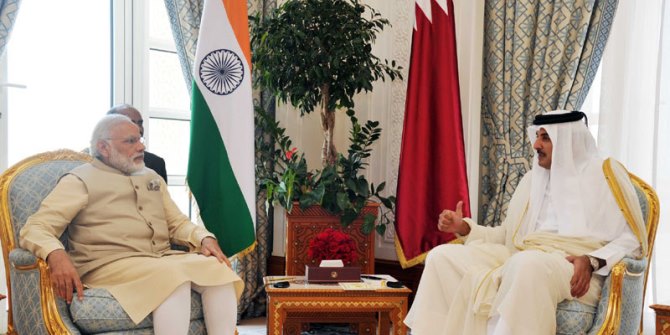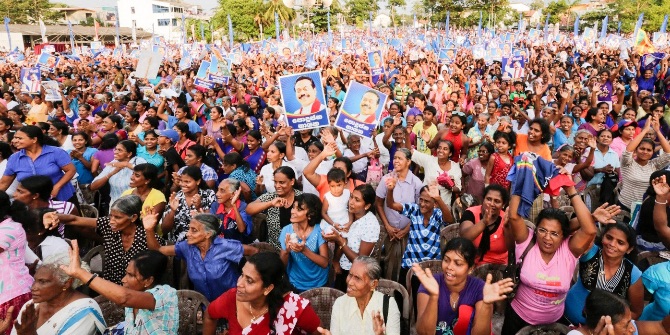Bangladesh’s Ready-Made Garment sector continues to be a large employer in the country despite suppressing worker’s rights, fostering exploitation and promoting glaring inequities. Adil Khan (University of Queensland, Australia) and Grace Milne (KU Leuven, Belgium) argue how the sector’s muddled engagement with the three components of global governance have resulted in such an unfair status quo.
Bangladesh’s Ready-Made Garment sector is predominantly a Foreign Direct Investment (FDI)-based industry and a key contributor to the country’s economic growth. It makes up 80 percent of the country’s export earnings and is a major employer.
The sector has grown through neoliberal economic arrangements that mean that the Ready-Made Garment investors (both foreign and local) enjoy the support of numerous policies that offer them the opportunity to maximise profits and minimise costs. The quasi-democratic conditions that characterise the current governing arrangements in Bangladesh stifle collective bargain, limit rights of protests and constrain free speech and unsurprisingly have resulted in the suppression of worker’s rights to living wages and a meagre investment in worker’s welfare and safety.
Global governance and the ready-made garment sector
This economic and social status quo is defined by Bangladesh’s arrangements with the global system of institutions and process, also known as global governance. There currently exists three components of such a global governance framework that influence Bangladesh’s Ready-Made Garment sector. They are:
- International Trade and Investment systems that provide foreign capita (Foreign Direct Investment) for national economic growth;
- Internationally-agreed United Nations Development Agenda initiatives, such as the 2015-2030 Sustainable Development Goals which include inclusion, equity, and sustainability as key parameters of development;
- International non-government organisation (INGO) advocates that lobby for human rights and social justice in governance policies, both within and across nations.
A country’s response to these three components of global governance and the nature of their adoption depend on three other factors: the way a country envisions ‘development’, the policy preferences of the ruling elite, and the capacity of a country to provide a space for citizen-led dialogue in democratic policy development.
In recent years, Bangladesh has tilted towards International Trade and Investment, the first of these three components at the cost of the Sustainable Development Goals and INGOs advocacy – components that demand incorporation of equity and social justice parameters in policies, resulting in grossly unequal outcomes in the sector. On the one hand, it gives impressive macro-economic gains and sizeable profits for investors, but on the other hand it promotes low wages and sub-standard working conditions for the workers.
INGO activism
A made-in-Bangladesh $50 T-shirt sold in Europe reveals these gross social inequalities: 43 percent of the profit goes to the retail mark-up, only one percent towards wages and another one percent towards factory’s overhead costs. Bangladesh’s neglect of labour rights in the RMG sector became tragically evident through the infamous Rana Plaza event in 2013 where an unfit-for-use building that housed five leading international brand-manufacturing factories collapsed and killed more than 1,000 workers and injured hundreds more. INGO activism exposed the sub-human conditions in which international brand names that were producing garments in the collapsed building.
This activism did trigger a consumer backlash and subsequently share prices of leading garment brands that produced garments in Bangladesh plummeted, which in the end prompted several remedial measures. Since then safety and security provisions including higher wages have to some extent improved. However, given Bangladesh’s dependence on FDI for economic growth and fierce competition it faces to attract investments, the aspect of cost minimisation remains the key motivator in the sector. Because of this the sector continues to suffer from numerous inequities.
The absence of a code of conduct for international businesses, as well as lack of provision of compliance of SDGs policies universally and the prevalence of quasi-to-authoritarian governing arrangements in Bangladesh all continue to suppress worker’s rights, fostering exploitation and promoting glaring inequities in the sector.
Global governance opportunities
Bangladesh’s engagement with the three different components of global governance offers both opportunities as well as challenges. The International Trade and Investment systems provides much needed capital for growth but its profit maximisation and cost minimisation agenda – a hallmark of neoliberalism – encourages inequities, which becomes unavoidable because of an absence of universal compliance of social justice and equity parameters of SDGs policies.Furthermore, the lack of a strong democratic space that stymies citizen voices produces biased and iniquitous policies.
Bangladesh’s Ready-Made Garment sector has however revealed one positive dimension of global governance: the important role INGO advocacy can play in holding abusers (both national and international) to account and in bringing justice to the abused.
To further improve worker rights, lower exploitation and promote equality in the sector, both Bangladesh and global governance networks must introduce and standardised codes of conduct for ethical business practices, both within and across nations. They must empower the United Nations with compliance mechanisms to ensure the SDGs are incorporated in policies; strengthen democracies at the country-level and create space for citizen engagement in policies. Finally, given that INGO activism has the capacity to hold abusers to account and promote remedial measures, NGO engagement, both within and across, in policy dialogue should be encouraged. Only when such measures are implemented will global governance work for all and economic growth will become more equitable, sustainable and the most vulnerable of the world that participate in FDI-based economic growth will finally be protected.
This article gives the views of the author and not the position of South Asia @ LSE blog, nor of the London School of Economics. Please read our comments policy before posting. Featured image: Sewing Machine. Credit: @alex_andrews, Unsplash.







